Fleurs du Mal Magazine


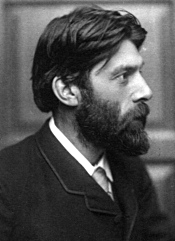
To the President of Magdalen College, Oxford
Since now from woodland mist and flooded clay
I am fled beside the steep Devonian shore,
Nor stand for welcome at your gothic door,
‘Neath the fair tower of Magdalen and May,
Such tribute, Warren, as fond poets pay
For generous esteem, I write, not more
Enhearten’d than my need is, reckoning o’er
My life-long wanderings on the heavenly way:
But well-befriended we become good friends,
Well-honour’d honourable; and all attain
Somewhat by fathering what fortune sends.
I bid your presidency a long reign,
True friend; and may your praise to greater ends
Aid better men than I, nor me in vain.
Robert Bridges
(1844-1930)
To the President of Magdalen College, Oxford
fleursdumal.nl magazine
More in: *War Poetry Archive, Archive A-B, Bridges, Robert, WAR & PEACE
‘En toch is alles wat we doen natuur’ bevat de mooiste natuurgedichten van dichter-tekenaar-bioloog Leo Vroman.
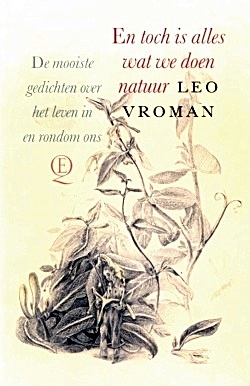 Vroman was gefascineerd door het leven in en rondom ons, dat hij tot in de wonderbaarlijkste details observeerde en beschreef.
Vroman was gefascineerd door het leven in en rondom ons, dat hij tot in de wonderbaarlijkste details observeerde en beschreef.
Tientallen bundels speelse poëzie schreef hij, een onuitputtelijke stroom gedichten van 1946 tot 2014, het jaar van zijn overlijden.
Mirjam van Hengel (auteur van het succesvolle Hoe mooi alles, over Leo en Tineke Vroman) maakte een nieuwe, ruime selectie uit de gedichten die Vroman schreef over de natuur – die van mensen, die van gras, bloemen en bomen, van orkanen en organen en van alle mogelijke dieren.
Leo Vroman (1915-2014) was dichter, prozaïst, essayist, illustrator en hematoloog. Hij studeerde biologie in Utrecht en vluchtte in 1940 naar Nederlands-Indië. In 1945 werd hij uit Japanse gevangenschap bevrijd en vestigde zich in Verenigde Staten, samen met zijn vrouw Tineke. Vroman debuteerde in 1946 met de bundel Gedichten. Vroman ontving in de loop van zijn leven zowat alle belangrijke literaire prijzen die er zijn. In 2006 verscheen het dagboek Misschien tot morgen.
En toch is alles wat we doen natuur
De mooiste gedichten over het leven in en rondom ons
Auteur: Leo Vroman
Redactie: Mirjam van Hengel
Uitgeverij: Querido
Hardcover
Taal: Nederlands
Afmetingen: 31x223x142 mm
Gewicht:481,00 gram
Verschijningsdatum: 6 maart 2018
Druk 1
ISBN10 902140902X
ISBN13 9789021409023
Prijs: € 24,99
# Voor meer informatie ga naar de website: www.vromanfoundation.com
new books
fleursdumal.nl magazine
More in: Archive U-V, Archive U-V, Art & Literature News, Natural history, Vroman, Leo
Le dimanche qui suivit, différents signes annoncèrent que quelque chose allait se produire.
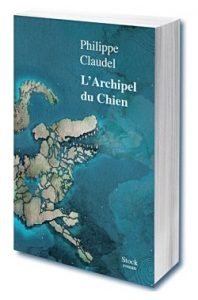 Ce fut déjà et cela dès l’aube une chaleur oppressante, sans brise aucune. L’air semblait s’être solidifié autour de l’île, dans une transparence compacte et gélatineuse qui déformait ça et là l’horizon quand il ne l’effaçait pas : l’île flottait au milieu de nulle part. Le Brau luisait de reflets de meringue.
Ce fut déjà et cela dès l’aube une chaleur oppressante, sans brise aucune. L’air semblait s’être solidifié autour de l’île, dans une transparence compacte et gélatineuse qui déformait ça et là l’horizon quand il ne l’effaçait pas : l’île flottait au milieu de nulle part. Le Brau luisait de reflets de meringue.
Les laves noires à nu en haut des vignes et des vergers frémissaient comme si soudain elles redevenaient liquides. Les maisons très vite se trouvèrent gorgées d’une haleine éreintante qui épuisa les corps comme les esprits.
On ne pouvait y jouir d’aucune fraîcheur.
Puis il y eut une odeur, presque imperceptible au début, à propos de laquelle on aurait pu se dire qu’on l’avait rêvée, ou qu’elle émanait des êtres, de leur peau, de leur bouche, de leurs vêtements ou de leurs intérieurs. Mais d’heure en heure l’odeur s’affirma. Elle s’installa d’une façon discrète, pour tout dire clandestine. »
Écrivain traduit dans le monde entier, Philippe Claudel est aussi cinéaste et dramaturge. Il a notamment publié aux éditions Stock Les Âmes grises, La Petite Fille de Monsieur Linh, Le Rapport de Brodeck et L’Arbre du pays Toraja. Membre de l’académie Goncourt, il réside en Lorraine où il est né en 1962.
Philippe Claudel
L’Archipel du Chien
Auteur Philippe Claudel
Editeur Stock
Date de parution 14/03/2018
Collection Bleue
Format 13cm x 21cm
EAN 978-2234085954
ISBN 2234085950
Nombre de pages 288
Format 14 x 22
Prix: 19.50€
new books
fleursdumal.nl magazine
More in: Archive C-D, Art & Literature News, AUDIO, CINEMA, RADIO & TV

Love Came to Us
Love came to us in time gone by
When one at twilight shyly played
And one in fear was standing nigh — –
For Love at first is all afraid.
We were grave lovers. Love is past
That had his sweet hours many a one;
Welcome to us now at the last
The ways that we shall go upon.
James Joyce
(1882-1941)
Love Came to Us
fleursdumal.nl magazine
More in: Archive I-J, Archive I-J, Joyce, James, Joyce, James
From the beginning of 1914 until his death in 1944, Mondrian wrote more than a hundred essays on the subject of art and society.
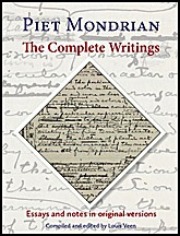 He wrote in Dutch, French and English, his choice of language often depending on his place of residence.
He wrote in Dutch, French and English, his choice of language often depending on his place of residence.
All of Mondrian’s writings proclaim his conviction that art paves the way to a better society.
Many of his texts have been published, but the original versions were often translated, edited, and polished.
This book aims to present the painter’s words as he wrote them, going back to the original sources of all of Mondrian’s manuscripts, typescripts, and personal papers.
Piet Mondrian
The Complete Writings
Louis Veen Ed.
Publisher Primavera Pers
ISBN 9789059972384
640 p,
ills colour & bw,
18 x 25 cm, hb,
Dutch/French/English
€49.50
Piet Mondrian / Mondriaan
new books
fleursdumal.nl magazine
More in: - Book News, - Bookstores, Archive M-N, Art & Literature News, Constuctivisme, Dadaïsme, De Stijl, Piet Mondriaan, Piet Mondriaan
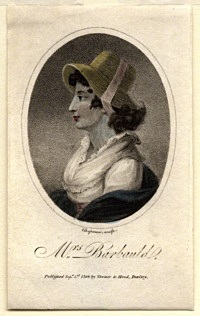
Life
Life! I know not what thou art,
But know that thou and I must part;
And when, or how, or where we met,
I own to me ‘s a secret yet.
But this I know, when thou art fled,
Where’er they lay these limbs, this head,
No clod so valueless shall be
As all that then remains of me.
O whither, whither dost thou fly?
Where bend unseen thy trackless course?
And in this strange divorce,
Ah, tell where I must seek this compound I?
To the vast ocean of empyreal flame
From whence thy essence came
Dost thou thy flight pursue, when freed
From matter’s base encumbering weed?
Or dost thou, hid from sight,
Wait, like some spell-bound knight,
Through blank oblivious years th’ appointed hour
To break thy trance and reassume thy power?
Yet canst thou without thought or feeling be?
O say, what art thou, when no more thou’rt thee?
Life! we have been long together,
Through pleasant and through cloudy weather;
‘Tis hard to part when friends are dear;
Perhaps ’twill cost a sigh, a tear;–
Then steal away, give little warning,
Choose thine own time;
Say not Good-night, but in some brighter clime
Bid me Good-morning!
Anna Laetitia Barbauld
(1743-1825)
Life
fleursdumal.nl magazine
More in: Archive A-B, Archive A-B, CLASSIC POETRY
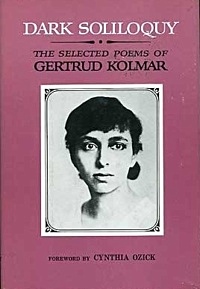
Du
Du. Ich will dich in den Wassern wecken!
Du. Ich will dich aus den Sternen schweißen!
Du. Ich will dich von dem Irdnen lecken,
Eine Hündin! Dich aus Früchten beißen,
Eine Wilde! Du. Ich will so vieles –
Liebes. Liebstes. Kannst du dich nicht spenden?
Nicht am Ende des Levkojenstieles
Deine weiße Blüte zu mir wenden?
Sieh, ich ging so oft auf harten Wegen,
Auf verpflastert harten, bösen Straßen;
Ich verdarb, verblich an Glut und Regen,
Schluchzend, stammelnd: “. . . über alle Maßen . . .”
Und die Pauke und das Blasrohr lärmten,
Und ich kam mit einer goldnen Kette,
Tanzte unter Lichtern, die mich wärmten,
Schönen Lichtern auf der Schädelstätte.
Und ich möchte wohl in Gärten sitzen,
Auch den Wein wohl trinken aus der Kelter,
Doch die Lider klafften, trübe Ritzen,
Und ich ward in Augenblicken älter.
Und auf meinen Leichnam hingekrochen
Ist die Schnecke träger Arbeitstage,
Zog den Schleimpfad dünner grauer Wochen,
Schlaffer Freude und geringer Plage.
In den Wäldern bin ich umgetrieben.
Ich verriet den Vögeln deinen Namen,
Doch die Vögel sind mir ferngeblieben;
Wenn ich weinte, zirpte keiner: Amen.
Und die Scheckenkühe an den Rainen
Grasten fort mit seltnem Häupterheben.
Da entfloh ich wieder zu den Steinen,
Die mir dieses Kind, mein Kind nicht geben.
Einmal muß ich noch im Finstren kauern
Und das Göttliche zu mir versammeln,
Es beschwören durch getünchte Mauern,
Seinem Ausgang meine Tür verrammeln,
Bis zum bunten Morgen mit ihm ringen.
Ach, es wird den Segen nimmer sprechen,
Nur mit seinem Schlag der erznen Schwingen
Diese flehnde Stirn in Stücke brechen…
Gertrud Kolmar
(1894-1943)
gedicht: Du
fleursdumal.nl magazine
More in: Archive K-L, Archive K-L, Kolmar, Gertrud
Als hij eindelijk zijn blaas heeft geleegd, schuift hij terug in de rolstoel en hijgt even uit.
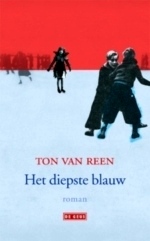 Zijn lijf wordt te zwaar. Het krijgt te weinig beweging. Hij zit en ligt. Waarom kan een mens zijn lijf niet vormen zoals hij het zelf wil hebben?
Zijn lijf wordt te zwaar. Het krijgt te weinig beweging. Hij zit en ligt. Waarom kan een mens zijn lijf niet vormen zoals hij het zelf wil hebben?
Hij tilt zijn armen op en houdt ze zo lang mogelijk omhoog. Tot de spieren pijn doen. Tot zijn schouders doof aanvoelen. Hij moet ze trainen. Elke dag drie keer. Weer steekt hij ze omhoog en telt tot twintig. Tot ze aanvoelen als blokken lood. Het is de prijs voor zijn laatste stukje vrijheid.
Het zweet staat op zijn voorhoofd. Hij ziet sterretjes van vermoeidheid.
Als hij uitgehijgd is, rijdt hij naar de verlaagde toilettafel. De spiegel is onbarmhartig, elke dag. Blauwgrijze ogen.
Een streng gezicht.
Ton van Reen: Het diepste blauw (034)
wordt vervolgd
fleursdumal.nl magazine
More in: - Book Stories, - Het diepste blauw, Archive Q-R, Reen, Ton van

Joachim Ringelnatz
Seepferdchen
Als ich noch ein Seepferdchen war,
Im vorigen Leben,
Wie war das wonnig, wunderbar,
Unter Wasser zu schweben.
In den träumenden Fluten
Wogte, wie Güte, das Haar
Der zierlichsten aller Seestuten,
Die meine Geliebte war.
Wir senkten uns still oder stiegen,
Tanzten harmonisch umeinand,
Ohne Arm, ohne Bein, ohne Hand,
Die Wolken sich in Wolken wiegen.
Sie spielte manchmal graziöses Entfliehn,
Auf daß ich ihr folge, sie hasche,
Und legte mir einmal im Ansichziehn
Eierchen in die Tasche.
Sie blickte traurig und stellte sich froh,
Schnappte nach einem Wasserfloh
Und ringelte sich
An einem Stengelchen fest und sprach so:
Ich liebe dich!
Du wieherst nicht, du äpfelst nicht,
Du trägst ein farbloses Panzerkleid
Und hast ein bekümmertes altes Gesicht,
Als wüßtest du um kommendes Leid.
Seestütchen! Schnörkelchen! Ringelnaß!
Wann war wohl das?
Und wer bedauert wohl später meine restlichen Knochen?
Es ist beinahe so, daß ich weine –
Lollo hat das vertrocknete, kleine
Schmerzverkrümmte Seepferd zerbrochen.
Joachim Ringelnatz
(1883 – 1934)
Seepferdchen
fleursdumal.nl magazine
More in: Archive Q-R, Joachim Ringelnatz, Natural history
Liu Xia, China, is a poet, artist, and founding member of the Independent Chinese PEN Centre. Xia has been held under unofficial house arrest in her Beijing apartment since her late husband, the poet Liu Xiaobo, was named the winner of the Nobel Peace Prize in October 2010.
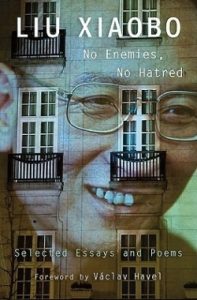 For seven years, Liu Xia (1961) was held in her apartment without access to phones, internet, doctors of her choice, or visitors. Following the death of her husband in July 2017 and the expression of concern for her wellbeing, Xia appeared in a video in which she asked to be left alone to mourn – it is thought that she may have done this at the behest of the authorities.
For seven years, Liu Xia (1961) was held in her apartment without access to phones, internet, doctors of her choice, or visitors. Following the death of her husband in July 2017 and the expression of concern for her wellbeing, Xia appeared in a video in which she asked to be left alone to mourn – it is thought that she may have done this at the behest of the authorities.
The Independent PEN Centre (ICPC) report that the restrictions applied against Liu Xia have relaxed somewhat; she has access to a telephone and is allowed to leave her home, but is under constant surveillance. Colleagues at ICPC report that Liu Xia has been removed from Beijing for the duration of the National People’s Congress; it is expected that she will be returned to her Beijing home after this date.
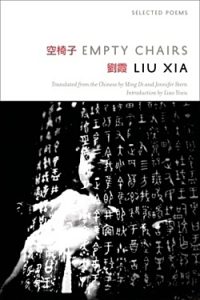
There are reports that Liu Xia’s mental and physical health continue to suffer due to her detention.
PEN International believes that the ongoing, extra-judicial house arrest of Liu Xia is a form of punishment for the human rights work carried out by her husband, Liu Xiaobo, and is extremely concerned for her physical and psychological integrity.
Please take action for Liu Xia.
# More information and how to act, see website PEN UK
fleursdumal.nl magazine
More in: Archive W-X, Archive W-X, Art & Literature News, EDITOR'S CHOICE, REPRESSION OF WRITERS, JOURNALISTS & ARTISTS

On Seeing a Piece of Our Artillery Brought into Action
Be slowly lifted up, thou long black arm,
Great gun towering towards Heaven, about to curse;
Sway steep against them, and for years rehearse
Huge imprecations like a blasting charm!
Reach at that Arrogance which needs thy harm,
And beat it down before its sins grow worse;
Spend our resentment, cannon,–yea, disburse
Our gold in shapes of flame, our breaths in storm.
Yet, for men’s sakes whom thy vast malison
Must wither innocent of enmity,
Be not withdrawn, dark arm, thy spoilure done,
Safe to the bosom of our prosperity.
But when thy spell be cast complete and whole,
May God curse thee, and cut thee from our soul!
Wilfred Owen
(1893 – 1918)
On Seeing a Piece of Our Artillery Brought into Action
fleursdumal.nl magazine
More in: Archive O-P, Owen, Wilfred, WAR & PEACE
W is de hoofdpersoon in de gedichten van De jongenskamer die samen één verhalend gedicht vormen.
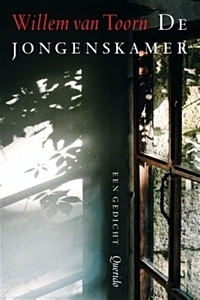 Het begint in de jaren voor de Tweede Wereldoorlog en eindigt in de onherkenbaar veranderde wereld van nu – maar wel met een liefdesgedicht.
Het begint in de jaren voor de Tweede Wereldoorlog en eindigt in de onherkenbaar veranderde wereld van nu – maar wel met een liefdesgedicht.
De kamer achter de werkplaats van W’s vader, een kleermaker, is de plek waar onder invloed van de tijd en de geschiedenis de eerste ideeën van W en zijn broers ontstaan over liefde, vriendschap, kunst en sport – én over de politieke en sociale werkelijkheid en de rol die het individu daarin kan spelen.
Al de liefdeservaringen, de vriendschappen, de boeken, de reizen die het leven van W bepalen, lijken toch altijd met onzichtbare draden verbonden met de eerste waarnemingen uit de jongenskamer.
Willem van Toorn (Amsterdam, 1935) is dichter, schrijver en vertaler. Hij publiceerde een groot aantal romans en verhalen- en gedichtenbundels, en was redacteur van het literair tijdschrift Raster.
Willem van Toorn
De jongenskamer.
Een gedicht
Uitgeverij: Querido
Paperback
ISBN: 9789021409351
Prijs: € 17,99
Publicatiedatum: 13-02-2018
new poetry
fleursdumal.nl magazine
More in: - Book News, Archive S-T, Archive S-T, Art & Literature News, LITERARY MAGAZINES, Willem van Toorn
Thank you for reading Fleurs du Mal - magazine for art & literature